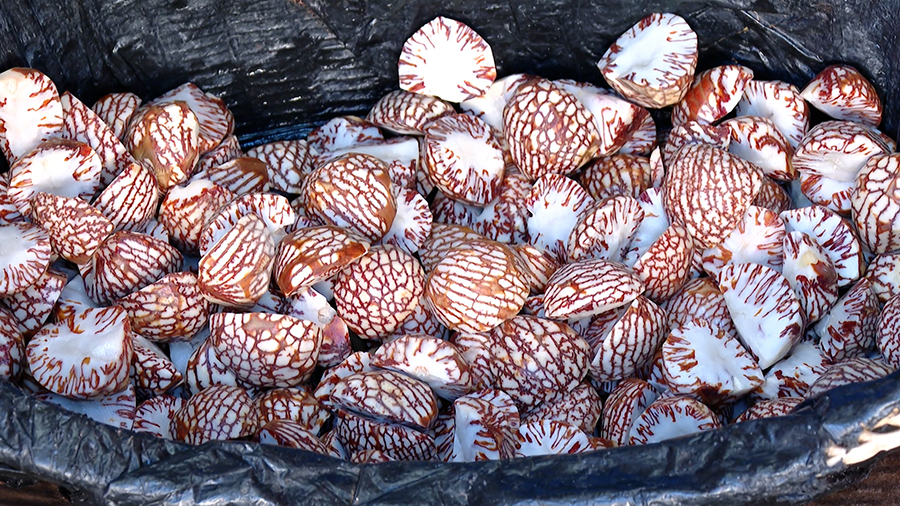
The National Health Survey 2023 reveals that areca nut consumption among Bhutanese aged 15 to 69 rose to nearly 60 per cent last year, marking a three per cent increase since 2019. The health ministry attributes the rise to the product being cheap, easily available and culturally accepted in the country. To address this, the ministry plans to introduce measures to reduce areca nut consumption as part of its initiatives to tackle non-communicable diseases under the 13th Five-Year Plan.
The habit of consuming areca nut, often in the form of betel quid, locally known as “Doma and Pani,” is deeply rooted in the Bhutanese culture.
However, its use has expanded to a variety of industrially processed and pre-packaged products such as Rajnigandha, Shikhar, and Shakila, among others.
According to the health ministry, the increase in areca nut consumption is concerning as areca nut use is linked to a higher risk of oral cancers.
“As part of the strategy, the ministry will start awareness and advocacy programmes in rural areas and district levels through multisectoral and Community-Based Support Systems starting next February. The awareness will focus on non-communicable diseases, including the risks of areca nut consumption,” said Laigden Dzed, chief programme officer of the Non-Communicable Diseases Division, Ministry of Health.
 There are currently no national policies or regulations to prevent the promotion, cultivation and use of areca nut. The health ministry officials said that areca nut consumption is a concern as it is one of the major risk factors for oral cancer.
There are currently no national policies or regulations to prevent the promotion, cultivation and use of areca nut. The health ministry officials said that areca nut consumption is a concern as it is one of the major risk factors for oral cancer.
“Consumption of areca nut is ingrained in Bhutanese culture, so it will take a long time to see immediate changes. However, we will implement improved strategies and continue to work towards reducing its use,” added Laigden Dzed, chief programme officer of the Non-Communicable Diseases Division, Ministry of Health.
In addition, the health ministry plans to collaborate with the Department of Trade to find possibilities for considering fiscal measures that would limit the import of areca nut-containing products.
The ministry also plans to collaborate with other stakeholders, such as the education ministry, to implement stricter regulations on students’ consumption of these products.
Meanwhile, the World Health Organisation’s International Agency for Research on Cancer classifies areca nut as a group 1 human carcinogen. This means that areca nut is dangerous to humans and can cause severe health risks.
Namgay Dema
Edited by Sonam Pem









